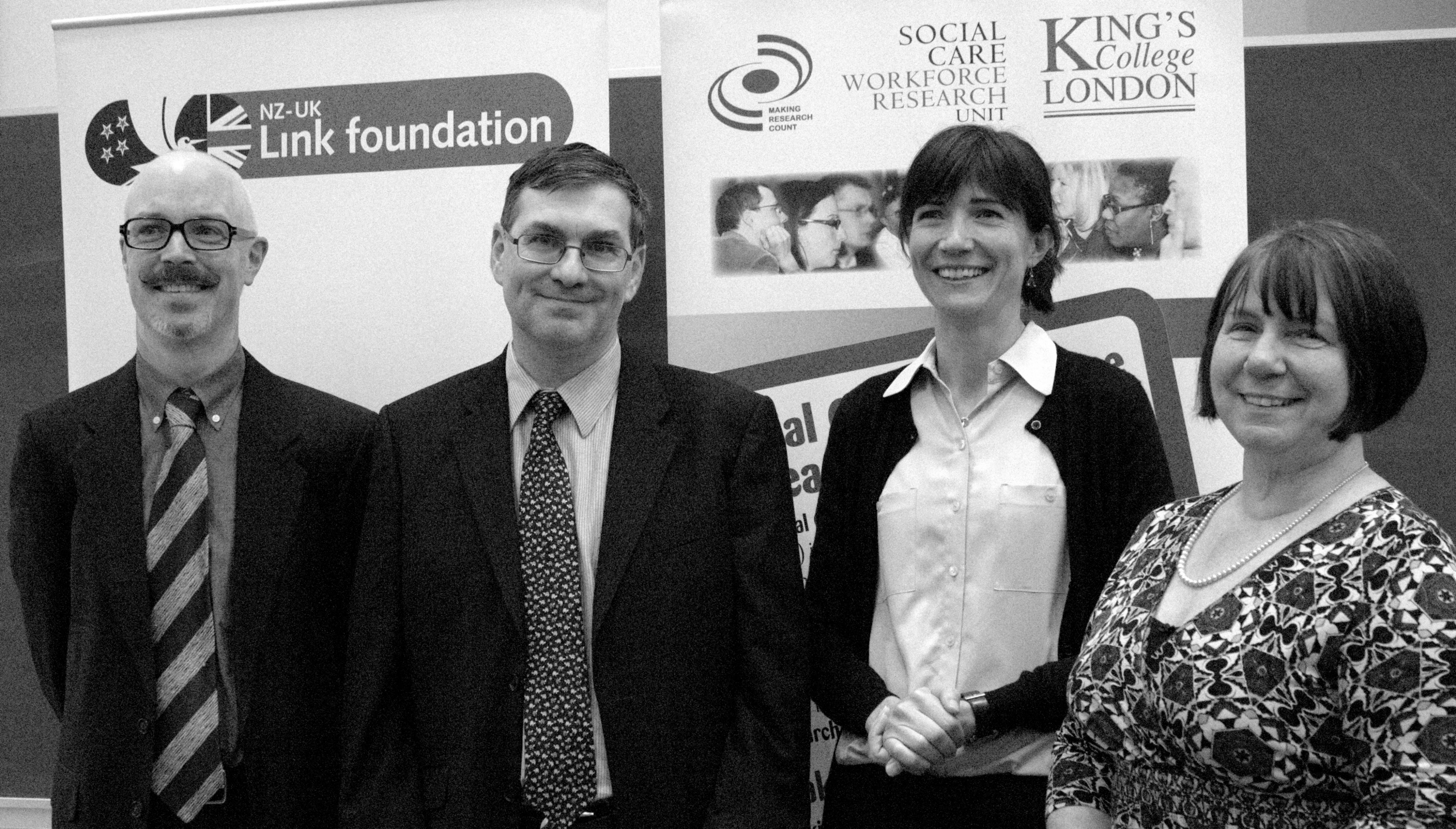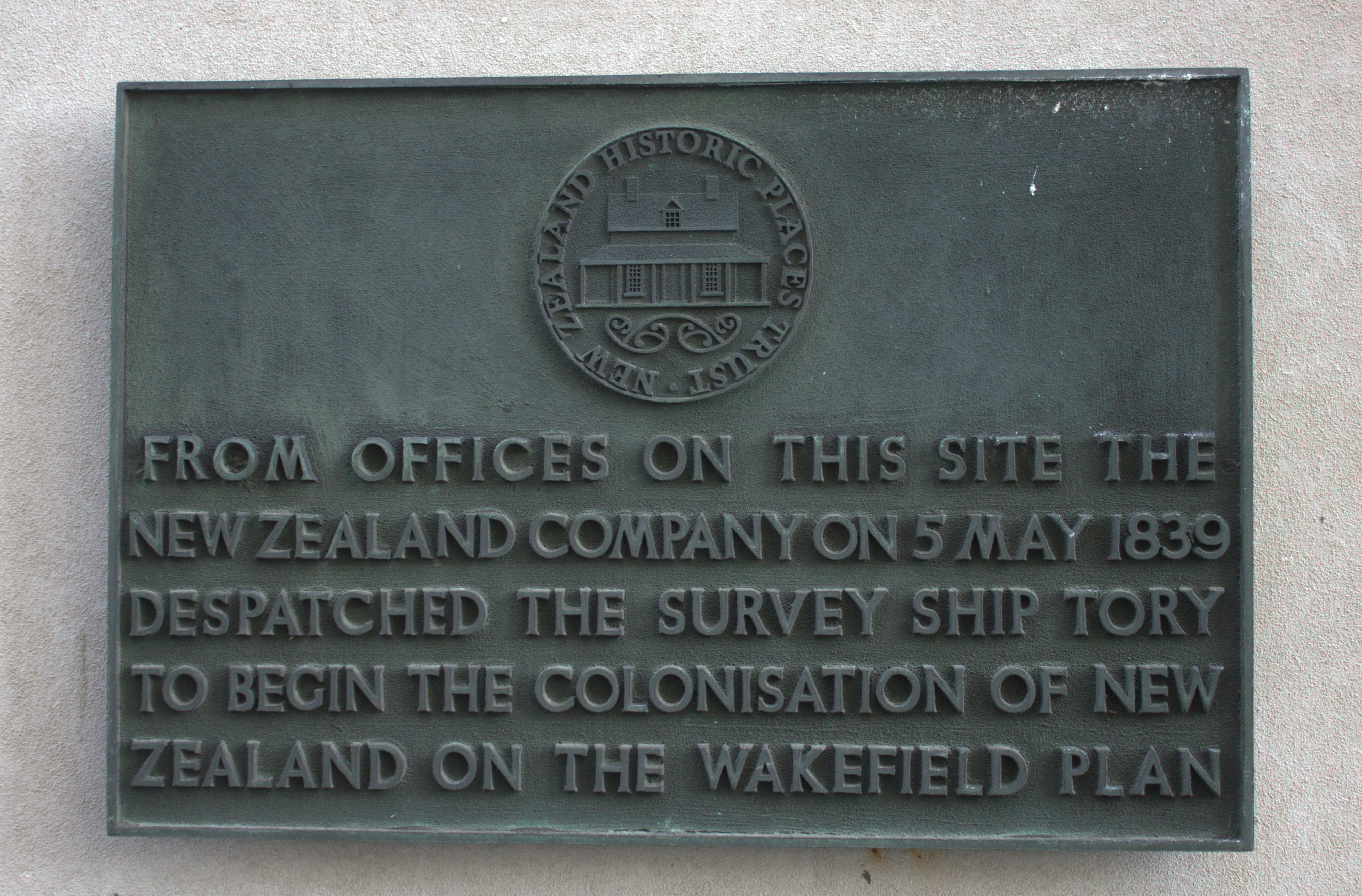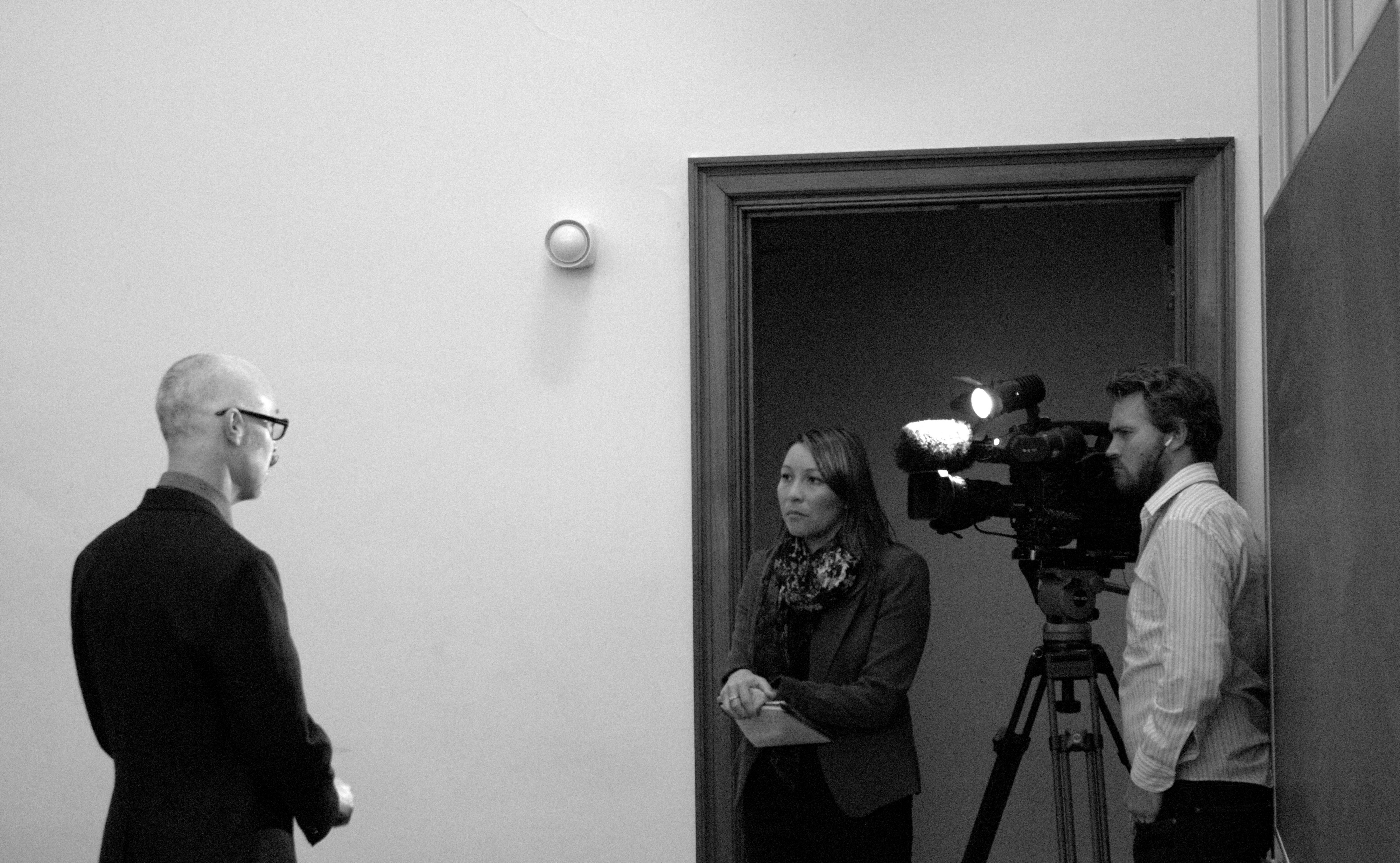 Stephen Martineau is a researcher at the Social Care Workforce Research Unit in the Policy Institute at King’s. (670 words)
Stephen Martineau is a researcher at the Social Care Workforce Research Unit in the Policy Institute at King’s. (670 words)
The Social Care Workforce Research Unit (SCWRU) last week hosted a lecture by Robin Gauld of the University of Otago, New Zealand. Professor Gauld, who is 2014 NZ-UK Link Foundation Visiting Professor, presented new research (done with Dr Simon Horsburgh) on the migration of medical professionals from the UK to New Zealand. Audience members, who included the High Commissioner of New Zealand and the Executive Dean of the Faculty of Social Science and Public Policy at King’s, also heard formal responses from Stephen Bach (Dept of Management at King’s) and Jill Manthorpe, Director of SCWRU.

Robin Gauld, Stephen Bach, Isabel Shutes (Chair) and Jill Manthorpe in the Anatomy Lecture Theatre at King’s College London, 29 October 2014
New Zealand has the largest proportion of foreign-qualified doctors in the OECD with half of these coming from the UK, and Professor Gauld prefaced his talk by highlighting the relative dearth of research on health workforce migration patterns between developed countries (as opposed to that from developing to developed nations).
As Professor Gauld trailed in his post on this blog a couple of weeks ago, his recent work has established the degree to which working conditions are integral to both the ‘push’ and the ‘pull’ factors in doctors’ decisions to move from the UK to NZ. In a survey of all the UK graduates registered in NZ in the prior ten years, 65% of those who responded reported that a desire to leave the NHS was an important or very important facet of their decision. He also found that 80% of study participants reported the NZ health system as better to work in than that of the UK.
The presence of International Medical Graduates (IMGs), Professor Gauld suggested, is a constant for New Zealand. Today, 43.6% of NZ doctors qualified outside the country (this compares to 36% for the UK). For historical antecedents to this state of affairs one need look no further than Professor Gauld’s own employer, the University of Otago (in Dunedin in the South Island), NZ’s oldest university where, in the 1870s, the medical department was set up by emigrés from the UK, particularly Scotland.  As it happens, around the corner from where I am writing is a reminder of the broader history of colonisation—the point of despatch in 1839 of the survey ship promoting land acquisition and settlement of New Zealand. Nearly 100 years later the ‘world’s first NHS’ was set up in New Zealand (in 1938)—so when they arrive UK doctors encounter a system that they can recognize (albeit with significant differences, such as charging for GP appointments, for example).
As it happens, around the corner from where I am writing is a reminder of the broader history of colonisation—the point of despatch in 1839 of the survey ship promoting land acquisition and settlement of New Zealand. Nearly 100 years later the ‘world’s first NHS’ was set up in New Zealand (in 1938)—so when they arrive UK doctors encounter a system that they can recognize (albeit with significant differences, such as charging for GP appointments, for example).
To the perspective provided by the history of colonisation, should be added that afforded by more recent trends in globalisation. In England and Wales today, 13% of us were born overseas (this figure spikes to 37% in London). In New Zealand, fully a quarter of present inhabitants were born elsewhere.
What is the value of this global flow, particularly when, as is the case in the migration patterns of IMGs, there is a high churn rate (70% of UK-qualified doctors have left NZ after working there for two years)? On the one hand there is the acknowledged value of doctors gaining experience in different cultures. On the other, there is concern about the costs and discontinuities of a revolving doors population of medical professionals. It’s worth noting here though that, in a coda to his lecture, Professor Gauld suggested that current NZ policy is seeking to reduce reliance on IMGs to ‘perhaps 15%’, as numbers of domestically trained medical graduates grow—a trend remarked upon in New Zealand’s TV3 report on the lecture and, incidentally, a scenario that may also be playing out in Australia.
Professor Gauld explicitly addresses the question of the benefits of health workforce migration between New Zealand and the UK in Leeds on 18 November, and he is back in London on 27 November to talk about ‘NZ developments that can contribute to NHS England’.
Stephen Martineau is a researcher at the Social Care Workforce Research Unit in the Policy Institute at King’s.
About this lecture series
Presentations from this event are available, including those of the formal respondents (and see Twitter: #wkforcemigration). A film of the event is available (more photographs here). This was the second in a four lecture series Robin Gauld is giving as 2014 NZ-UK Link Foundation Visiting Professor. The first, given on 22 October, was filmed: ‘The current English NHS reforms: what can be learned from NZ?’ (see also: the NZ-UK Link Foundation event page). Details of all four of Professor Gauld’s lectures are available (and for more information see this NZ-UK Link Foundation flyer).
See also: ‘New Zealand’s ‘integrated performance and incentive framework’: Will it drive a ‘whole of system’ approach to health service design?’ by Robin Gauld.
Related work from the Social Care Workforce Research Unit at King’s
- The Social Care Workforce Research Unit, which hosted this event, is home to ROWM, the Research On Workforce Mobility network, which brings together researchers examining global migration of the social work and social care workforce.
- See also our research project: International Social Care Workers.
- We recently hosted the launch of Karen Christensen and Ingrid Guldvik’s book on migrant care workers.
- Our work for the Department of Health’s Policy Research Programme on care workers over the long term includes interviews with migrant care workers exploring their care work histories and plans, and our interviews with care employers are tracking changes in recruitment and retention.
